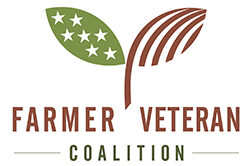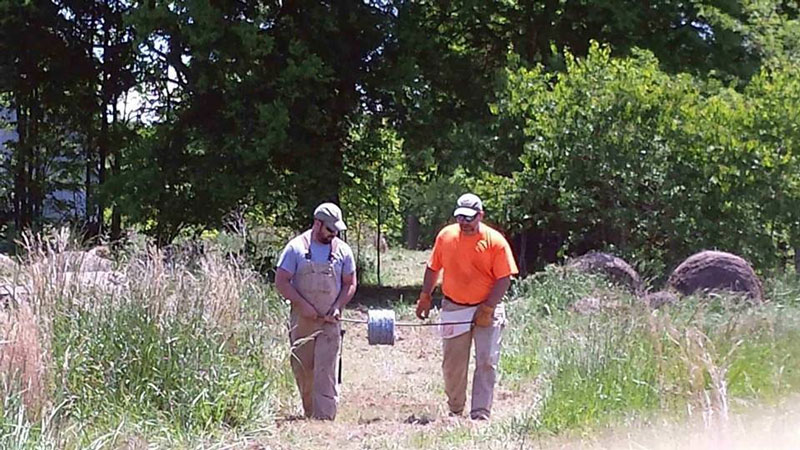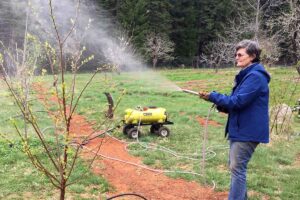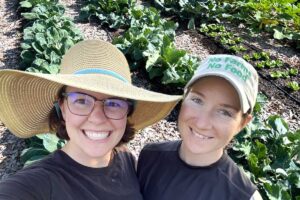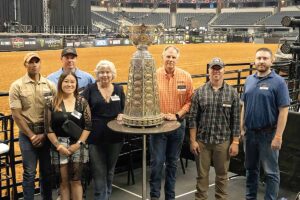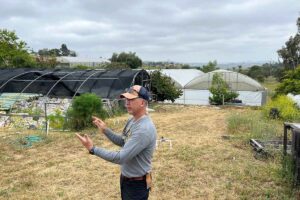Chad Tackett left the Army in 2012 after 22 years and four deployments and has been pursuing farming ever since. His wife is also a veteran and their son is currently serving. Chad has purchased 200 acres of a ‘slightly run-down’ farm outside Augusta, Georgia. Joining Chad as he clears fields and builds fences is Charles “Chuck” Jones. Chuck left the Army in 2014 and though he doesn’t own land, he does own a tractor and some equipment and has been helping Chad prepare the farm for cattle.
Marvin Frink ended his military career in 2004 after 14 years due to combat-related injuries, but continued on as an Anti-Terrorism Forces Protection Specialist trainer for Army Special Forces at Fort Bragg, North Carolina. When he told his father he wanted to become a cattle rancher, Dad insisted he first work on other ranches for three years, which Marvin did. Since purchasing his 46 acre farm, Marvin has been building fences and clearing fields but has yet to acquire any cattle.
Chad, Chuck and Marvin will all receive cattle this Spring from the Farmer Veteran Coalition Fellowship Fund. The Fund has awarded 20 veterans a total of $104,000 this month in the first round of 2015 selections. “A total of 125 completed applications were submitted and it will take until the end of June to process them all,” explained Michael O’Gorman, Director of Farmer Veteran Coalition (FVC).
Marvin will bring two Black Angus heifers and their three calves back to his farm next week. Chad and Chuck are looking at Black Angus as well, with their eye on Augusta’s farm-to-table restaurants. All three ranchers will sell their beef under the Homegrown by Heroes label.
Marvin’s grant was made possible by funding from Prairie Grove Farms; Chad’s came through the Bob Woodruff Foundation and Chuck’s came from Newman’s Own Foundation. Since 2011, FVC has awarded more than $600,000 in small grants in the name of the organization that has supported the fund. FVC hopes to award $300,000 this year thanks to support from these three funders and Prudential Financial.
Fellowship funds are not sent to the veteran but rather to a third party vendor for an item critical to the launch of a young farm business. FVC requires that the veteran has already invested in their farm, and has submitted their business plan, military records, personal references and contacts for their mentors. Applications are reviewed and voted on by nine volunteers with long careers in farming and farm lending.
Kara Warwick will acquirea used tractor for her Tennessee farm with help from Prudential Financial. Kara served in an Army Civil Affairs unit in both Iraq and Afghanistan. Michael Dylan Thomas is drilling a well to get much needed water for his poultry and pork operation in Michigan. Dylan, who served two tours with the Army in Iraq, sells much of his pork to Niman Ranch, who also funded his grant.
Navy Seal Jason Gardner was away from home when he was awarded a Fellowship for a cold room on his small vegetable farm in Southern California. His wife and farming partner, Iris, said she will tell him when he gets back. “He’s going to be so excited!” she said. “He loves coming home to the farm.”
